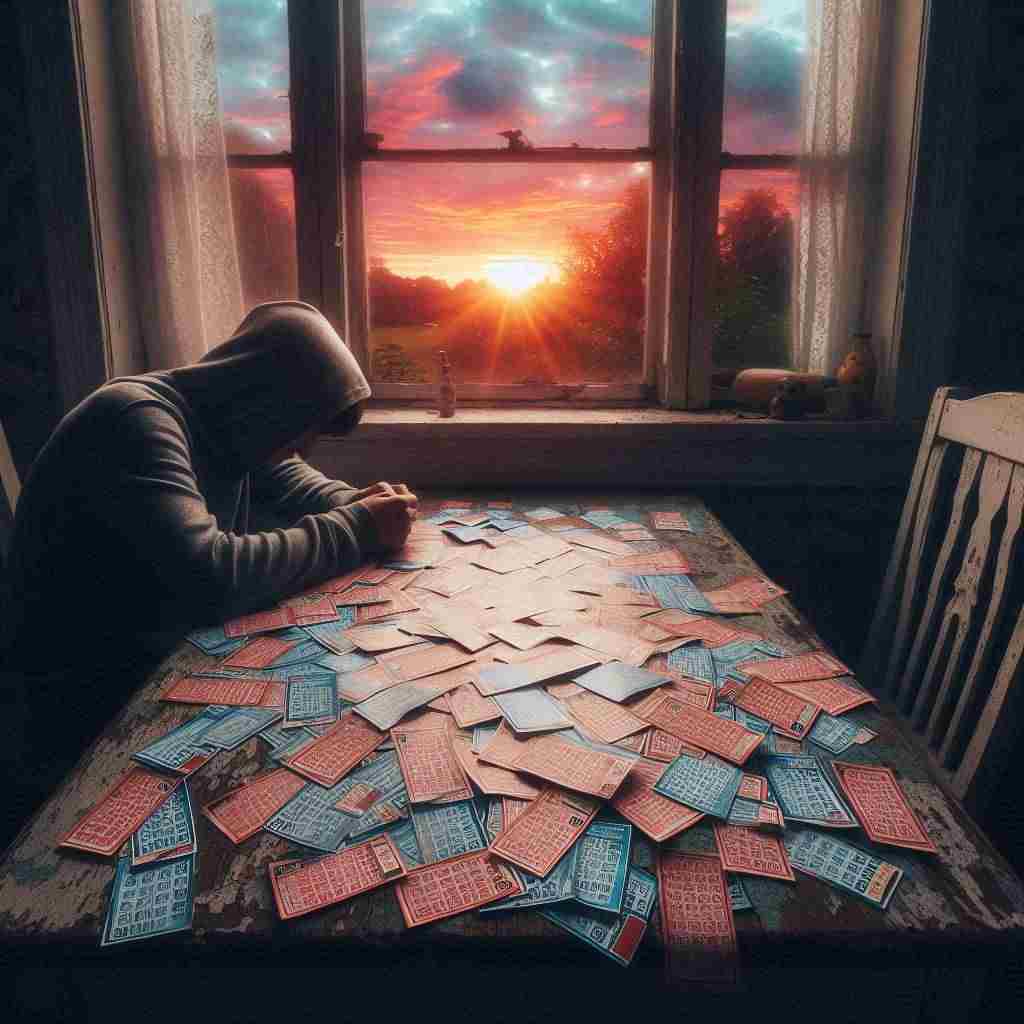Lottery Addict
Richard

I buy my ticket every week,
My rational mind, it takes a backseat,
They say I've got no chance, the odds are slim,
But you’ve got to be in it, to ever win.
I see the winners on TV,
They're just like me, it could be me,
But I don't see the countless souls,
Who’ve thrown their money in the hole.
If it’s so easy, then why do we wait?
With rollovers stacking, it’s a tempting bait,
A win could change my life, I believe it’s true,
But the money I’ve lost could have changed it too.
It's a tax on the poor, a fool's delight,
A game of chance that fills the night,
I know I'm one, both poor and dumb,
Yet every week, here I come.
The numbers spin, they taunt my brain,
The odds, they dance, drive me insane,
More likely to be hit, crossing the street,
But my heart skips a beat, with every heat.
We can’t grasp the chance, the odds so vast,
But hope springs eternal, as long as it lasts,
We dream of a future, a fortune's embrace,
Blind to the math, it's a desperate chase.
I see the numbers, they blur and blend,
But still I play, and I pretend,
That someday soon, my luck will turn,
But deep inside, my doubts still burn.
Yet here I stand, ticket in hand,
Hoping for that promised land,
Ignoring the truth, the bitter pain,
That my dreams are just a gambler's game.
I’m a lottery addict, chasing a lie,
With dreams so high, and odds so shy,
Every ticket bought, a hope anew,
In this endless game, I see it through.
Richard's Lottery Addict
Richard's "Lottery Addict" is a poignant exploration of the human psyche, delving into the complex relationship between hope, desperation, and self-awareness. The song masterfully captures the internal struggle of a lottery player, torn between rational understanding and the allure of life-changing possibilities.
The opening lines immediately establish the narrator's conflicted state of mind. The admission that their "rational mind takes a backseat" sets the tone for the entire piece, highlighting the conscious choice to ignore logic in pursuit of an unlikely dream. This conflict between reason and hope is a recurring theme throughout the song, reflecting the broader human tendency to prioritize potential rewards over statistical realities.
The lyrics touch on the psychological tactics employed by lottery organizers to maintain engagement. References to seeing winners on TV and "rollovers stacking" demonstrate how the illusion of attainability is perpetuated, preying on the natural human inclination to focus on success stories rather than the vastly more common losses. This selective perception is a powerful motivator, allowing players to continually justify their participation despite overwhelming odds.
A particularly striking aspect of the song is its brutal honesty. The narrator acknowledges their status as "both poor and dumb," yet continues to participate week after week. This self-awareness adds a layer of tragedy to the narrative, suggesting that addiction can persist even in the face of clear understanding. The line "A win could change my life, I believe it's true, But the money I've lost could have changed it too" is especially powerful, encapsulating the bittersweet irony of chasing a dream at the expense of tangible improvements to one's current situation.
The song also touches on the societal implications of lotteries, referring to them as a "tax on the poor." This framing highlights the disproportionate impact of gambling on vulnerable populations, suggesting a systemic exploitation of those who can least afford to lose. By juxtaposing personal responsibility with societal structures, the lyrics invite listeners to consider the broader ethical questions surrounding state-sponsored gambling.
Throughout the piece, vivid imagery and metaphors effectively convey the emotional experience of playing the lottery. Descriptions of numbers spinning, taunting, and blurring paint a picture of psychological disorientation. The comparison to being "hit, crossing the street" serves as a stark reminder of the astronomical odds, while simultaneously highlighting the brain's inability to truly comprehend such vast probabilities.
The repetition of the chorus, "If it's so easy, then why do we wait?" serves as a haunting refrain, challenging the listener to confront the contradictions inherent in lottery participation. It encapsulates the cognitive dissonance experienced by players who simultaneously believe in the ease of winning and the need to wait for their turn.
As the song progresses, there's a palpable sense of resignation. The narrator's acknowledgment that their "doubts still burn" and that their dreams are "just a gambler's game" suggests a growing awareness of the futility of their actions. Yet, the final verses reaffirm their commitment to continue playing, illustrating the powerful grip of hope and addiction.
"Lottery Addict" is ultimately a nuanced exploration of human nature, touching on themes of hope, delusion, addiction, and the complex interplay between individual choices and societal structures. By offering an unflinching look at the thought processes of a lottery player, the song invites listeners to reflect on their own relationships with hope, risk, and the allure of life-changing possibilities.
This text was generated by AI and is for reference only. Learn more
Want to join the discussion? Reopen or create a unique username to comment. No personal details required!



Comments
No comments yet. Be the first to comment!